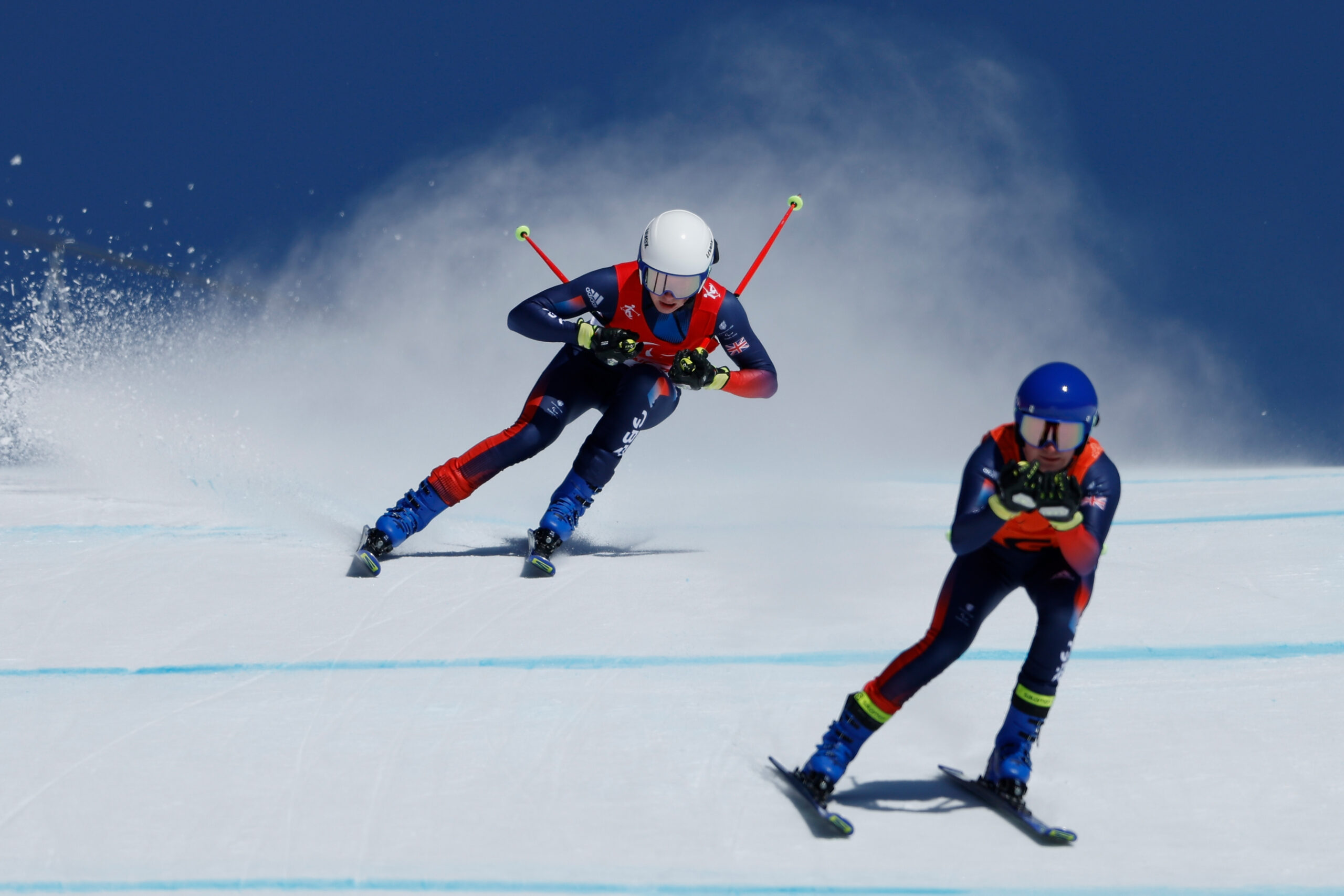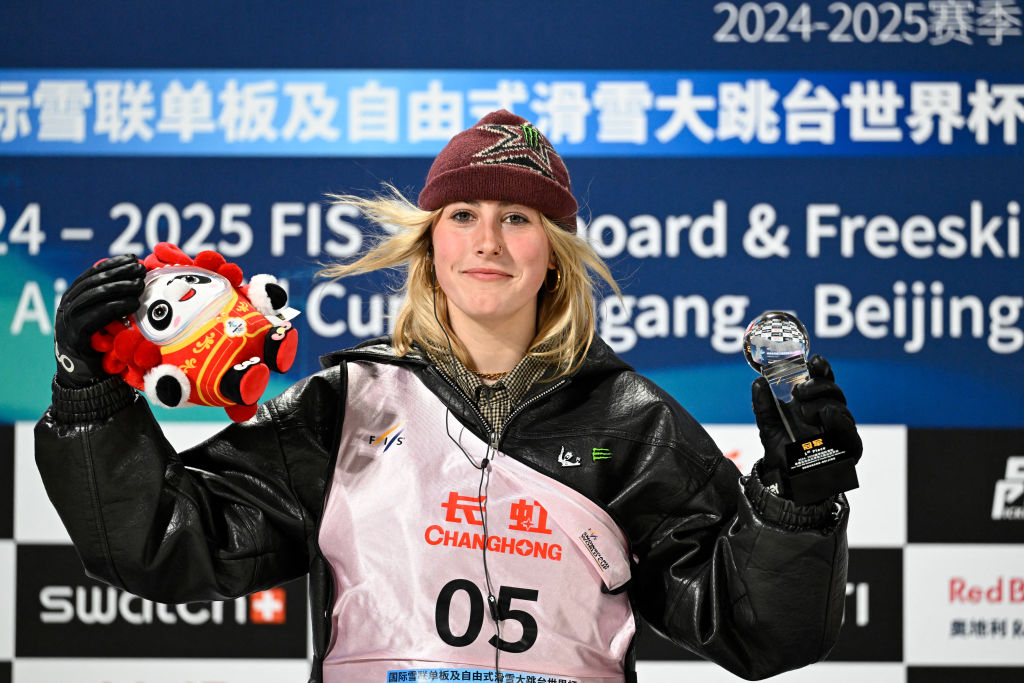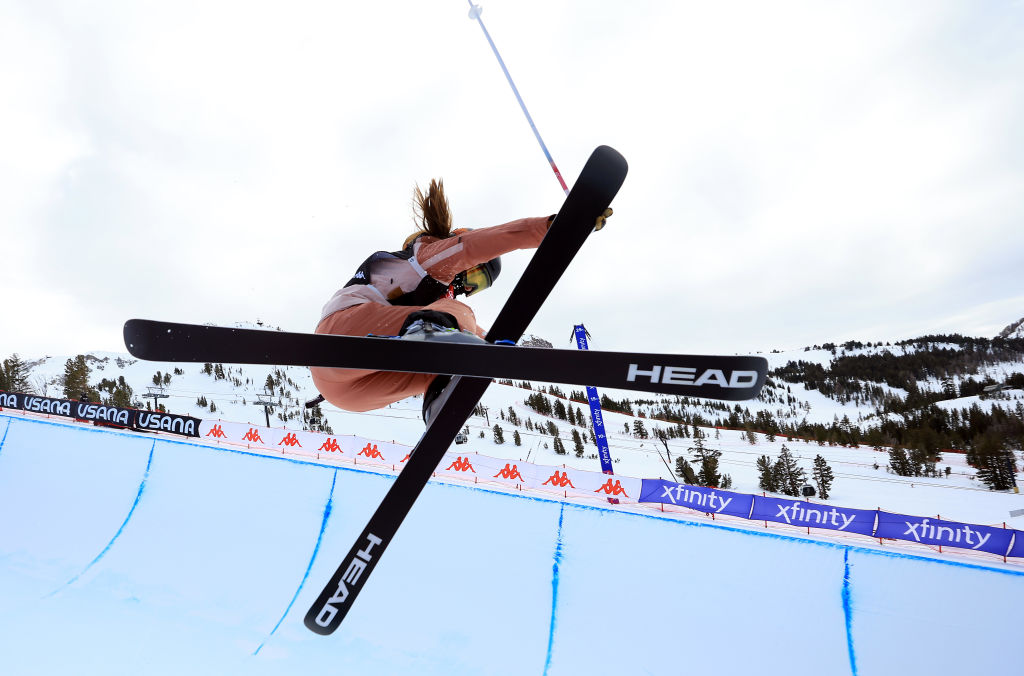Milan-Cortina will be a celebration of 'uniqueness and progression' says Dr Claire Williams
Next year’s Milan Cortina Winter Olympic and Paralympic Games will be the first Winter Games held in Europe since Torino 2006, 20 years ago, with GB’s athletes taking to Italy’s slopes, tracks and rinks once more as the world watches on.
 Responsible for many of the nation’s winter hopefuls are GB Snowsport, the national governing body which oversees 12 Olympic and Paralympic disciplines. The UK Sports Institute (UKSI)’s Dr Claire Williams was appointed to the new role of Performance Support Lead in October 2024 and has been eagerly embracing the new opportunities and challenges that come with winter sport.
Responsible for many of the nation’s winter hopefuls are GB Snowsport, the national governing body which oversees 12 Olympic and Paralympic disciplines. The UK Sports Institute (UKSI)’s Dr Claire Williams was appointed to the new role of Performance Support Lead in October 2024 and has been eagerly embracing the new opportunities and challenges that come with winter sport.
With a background in leadership, performance analysis and biomechanics, Claire is a keen snowboarder and has more than a decade’s experience in the high-performance system, working primarily within British Gymnastics. She explained that while there are a number of similarities between the two sports, there are some key differences in the way they operate.
“The age of the athletes [in gymnastics and snowsports] is quite similar, as they often join the World Class Programme from a young age, and can continue in the sport into their 30s, if they wish.
“There’s a lot of passion, creativity and expression [in both sports], with athletes’ other interests often aligning, or having similarities, to their sport. So if a snowboarder wants to switch off from big air or slopestyle, they will often go and explore the mountain, skateboard or wakeboard and that’s the same with gymnasts, they’ll often explore other areas of their craft (performing arts).
“The way the programmes operate is very different though, as gymnastics is semi-centralised [at Lilleshall National Sports Centre, in the West Midlands], whereas in snowsports, the athletes and coaches are on the road for 90% of the year.
 The snowsport season typically kicks off in September, running right through until April, with over 75 competitions across the various disciplines taking place right across the world.
The snowsport season typically kicks off in September, running right through until April, with over 75 competitions across the various disciplines taking place right across the world.
For Claire, the most important aspect of her role is to connect the athletes and coaches with the support they need to thrive, linking them in with teams and services at the UKSI.
“They [athletes and coaches] often go on the World Cup circuit and will go back-to-back in terms of competitions, with a lot of time spent away in different time zones, so my job is to connect everyone and make sure everyone is getting what they need.
“It’s about breaking down barriers and helping the sport to understand what they can access, whether that’s linking into Performance Data even though they don’t have a UKSI Performance Analyst or Biomechanist, or working with the Female Athlete Health Team, or fully utilising PDMS [the UKSI’s Performance Data Management System], so they can get an overview of recent injury, for example.
“Not all of our practitioners are from the UKSI, so that knowledge isn’t always shared or clear, so that’s part of my role, letting the sport know how they can utilise these teams and services to support their performance goals.”
With a Games on the horizon – the Milan Cortina Olympic Games Opening Ceremony is on 6 February 2026, with the Paralympic Games following a month later – Claire sees those relationships and connections as more vital than ever.
“My biggest focus over the next 12 months is ensuring the athletes have what they need to compete. From a technical perspective, we have great coaches in place to support the athletes, so it’s making sure the support services are flexible to meet the needs of the athletes.
“There’s also a lot of cross collaboration between the SIS [sportscotland institute of sport] and the UKSI, as we have pathway, development and World Class Programme athletes based in Scotland, so we need to maintain clear channels of communication and work together to be the best package for our athletes.”
 Looking ahead to the Games, Claire’s idea of success is not just about podium finishes.
Looking ahead to the Games, Claire’s idea of success is not just about podium finishes.
“A successful Games for me would be to showcase the athlete, coach and practitioner talent we have and to share their stories with everyone back home.
“For me, it is all about the journey, as the Games are only a small part of what we do supporting the athletes.
“There will be a lot of individual ‘small’ moments of success, this could be a practitioner working with an athlete to overcome an injury, or seeing a small improvement in an area of training or performance, for me, it all needs to be celebrated.
“From a bigger, broader perspective, the Games provides an amazing opportunity for athletes to share their passion with the world and to see the snowsports disciplines celebrated for their uniqueness and progression.”
The Milan Cortina Olympic Games get underway on 4 February 2026 and the Paralympic Games start on 4 March 2026.
Find out more about GB Snowsport, ParalympicsGB and Team GB.